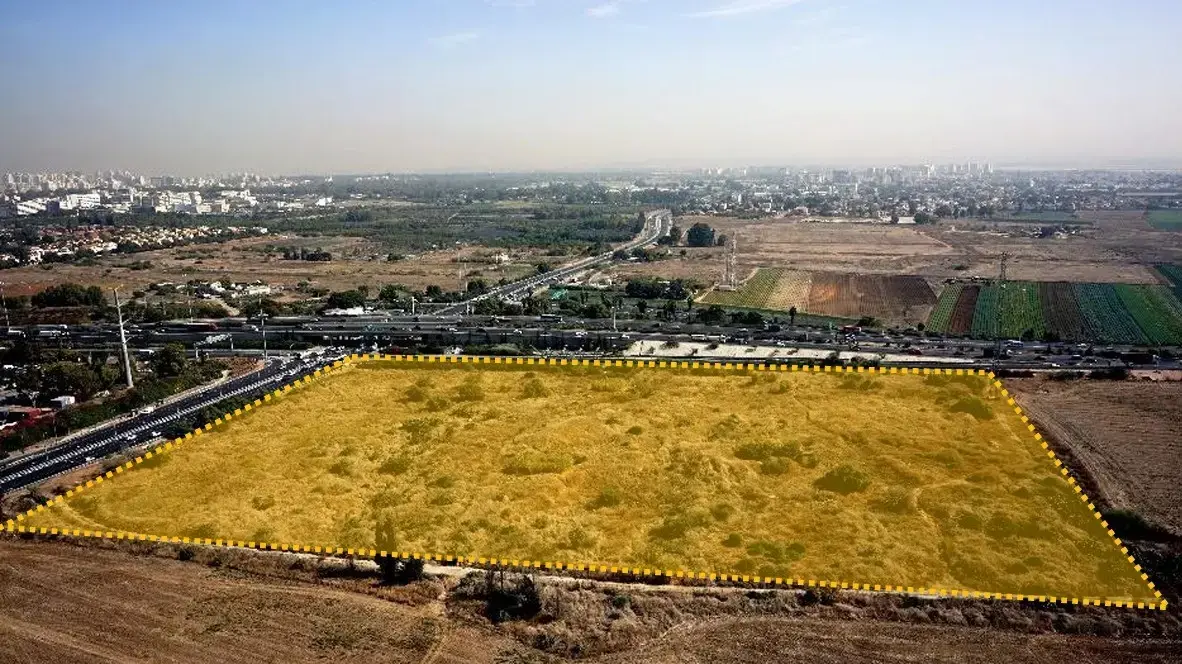Tourism
news
After 32 years of digging: The lost biblical city that Jesus cursed and performed miracles in was found?
After 32 years of archeological excavations, experts claim that it can be confirmed that the old city identified as the Hellenistic "hunting house" was located northeast of the Sea of Galilee.
Tags
Archeology
Jesus
Not to be missed
Monday, 28 September 2020, 23:35
Share on Facebook
Share on WhatsApp
Share on general
Share on general
Share on Twitter
Share on Email
0 comments
A dolphin is found swimming with sap surfers on the shores of the Krayot
Tracker rescues Oach in the Arava
Rocks at the Hof Hacarmel Field School
On the historic flight to Abu Dhabi: Passing over my name ...
The exhibition "The Naked Man in Art from the 18th Century to the Present" ...
Documentary excerpts from Yom Kippur in Israel
Maagan Michael Coastal Strip
Kopenhagen Thailand
A common viper snake swims in a fish pond in the Valley of the Springs
Dolphins Sand Beaches Tel Aviv
A gray heron is being treated at the safari's wildlife hospital
Nahal Kziv
The trailer for the movie Son of God - The Story of Jesus (Official Website)
The exact location of the Hellenistic city of Beit Tziyada is found after three decades of archeological excavations at Tel Beit Tzida, or by its other name "a-Tel" in the area of Jordan Park, northeast of the Sea of Galilee.
Archaeologists have been conducting excavations in the a-Tel area for decades and now some are confident that they have the evidence to support their claims.
Beit Tziyada was a major city in the Galilee region that was mentioned many times in the Bible and especially in the New Testament. The city developed in the first century BC and became the main city in the area. Previously, it was a small fishing village. According to the New Testament, some of Jesus' apostles were born in the city. Peter, Andrew and Philip.The house of a hunter was also mentioned as a place where Jesus lived and worked, when in the New Testament it is written that the miracle of bread and fish (in which Jesus managed to feed 5,000 people, in five loaves of bread and two fish :) happened there, On the water.In addition -Jesus cursed the city because its residents refused to hear his voice.The
Daily Star reported that Professor Rami Arab believes that the mystery of the hunter's house has now been finally solved.After 32 years of excavations, Dr. Arab, from the University of Nebraska, casts no small doubt that a- Tel, the excavation site in the Golan Heights, is where the biblical village was.
More on Walla!
NEWS
New discoveries: Has the lost city in the north of the Sea of Galilee been found?
To the full article
Archaeological Excavations at Tel (Credit: Pen News / Bethsaida Excavations Project)
A biblical expert claims that there is evidence in Jerusalem of the biblical story of Jonah and the whale
A rare glimpse into a ghost village immersed in a toxic and dangerous lake in Romania
Thus the creepy skeletons of the Papua Guinea tribe defeated other warrior tribes
Time for self-indulgence: What can we buy ourselves for the holidays this year?
"Ancient sources place a number of requirements on identifying a side house," the professor said, "the findings at A-Tel convinced not only me but also a credible group of experts. When something goes like a duck and sounds like a duck, it is a duck."
To refine his findings, Dr. Arab referred to the Roman historian, Joseph ben Matityahu, who described the location of a hunter's daughter. "Joseph said the town was located in the 'Lower Golan' near the estuary of the Jordan River," Dr. Arab said, "it means it The place where we should look for the house of a hunter. "
He also noted that the house of a hunter had become a developed city and was named Livia (Julia) after the wife of the Roman emperor Augustus.
"In Tel-Tel we found a temple dedicated to Julia, the wife of Augustus."
During the archeological excavations at A-Tel, monumental fortifications, food warehouses and city gates were found.
Scientists claim that the remains date to the Iron Age and claim that they belong to the capital of the Geshur kingdom, which later became the house of a hunter.
Grape Frieze from Tel (Pen News / Bethsaida Excavations Project)
Although A-Tel is more than a mile from the Sea of Galilee - contrary to the biblical description of Beit Tziyada as a place accessible by sea by boat, it is possible that the place was closer to the Sea of Galilee in ancient times and that tectonic movements and changes in water level led to the distance.
Professor Arab added: "The Sea of Galilee is right in the center of the Syrian-African rift and is prone to tectonic changes."
He added that his team discovered ancient fishing gear among the ruins of the settlement.
The professor also referred to claims that a nearby site, al-Araj, is the real home of a hunter, but he said that although these are "exceptional" findings, they do not belong to a hunter's house but to a former military camp, "this is an outstanding achievement, but it is not a home "A hunter mentioned in ancient sources but the ruins of a military camp," he added.
Share on Facebook
Share on WhatsApp
Share on general
Share on general
Share on Twitter
Share on Email
0 comments





